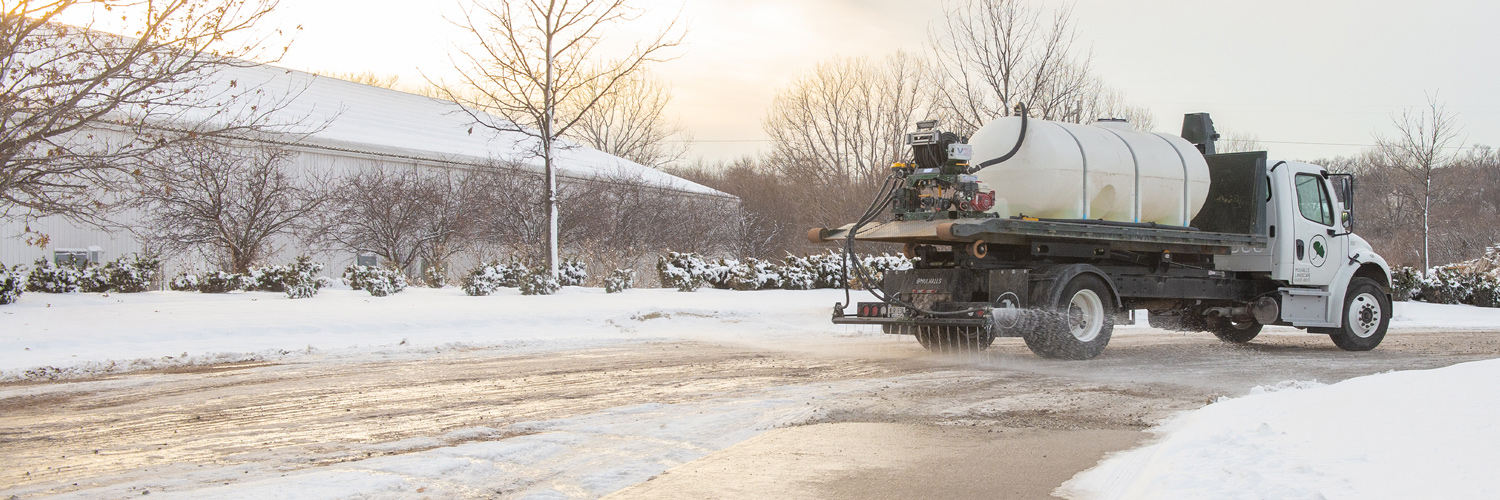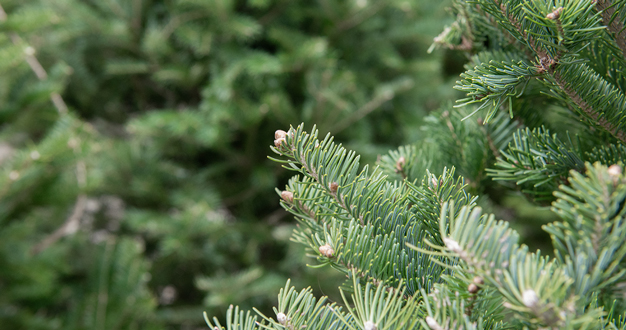
In everything we do, our commitment is to make Omaha a more beautiful, healthy, and sustainable place to live. And that commitment isn’t just about planting trees, shrubs, and flowers throughout the community. It applies to our winter activities too – like the work of our Snow + Ice Management team.
As we work to keep surfaces clear of snow and ice for safe driving and walking, this year we’ve switched from using rock salt to applying liquid salt brine for our commercial clients. And it’s a big win – not only for our community but for the planet too. We’re really excited about the change, and we think you will be too.

A Short History of Winter Road Maintenance
Sodium chloride – what we know as rock salt – has been used to break up snow and ice on pavement since the 1940’s. Since then, according to a paper published by the University of Florida, the amount of salt applied to our nation’s roadways and other concrete surfaces has increased to over 22 million tons each year. Why so much? Because it works. When salt mixes with water, it lowers the freezing point, breaking the freezing precipitation’s bond with the pavement.
In the traditional process, rock salt is applied to snow and ice using a truck with a spinner that flings the material out in a wide arc across the roadway. Then, the salt works its way down through the accumulated precipitation.
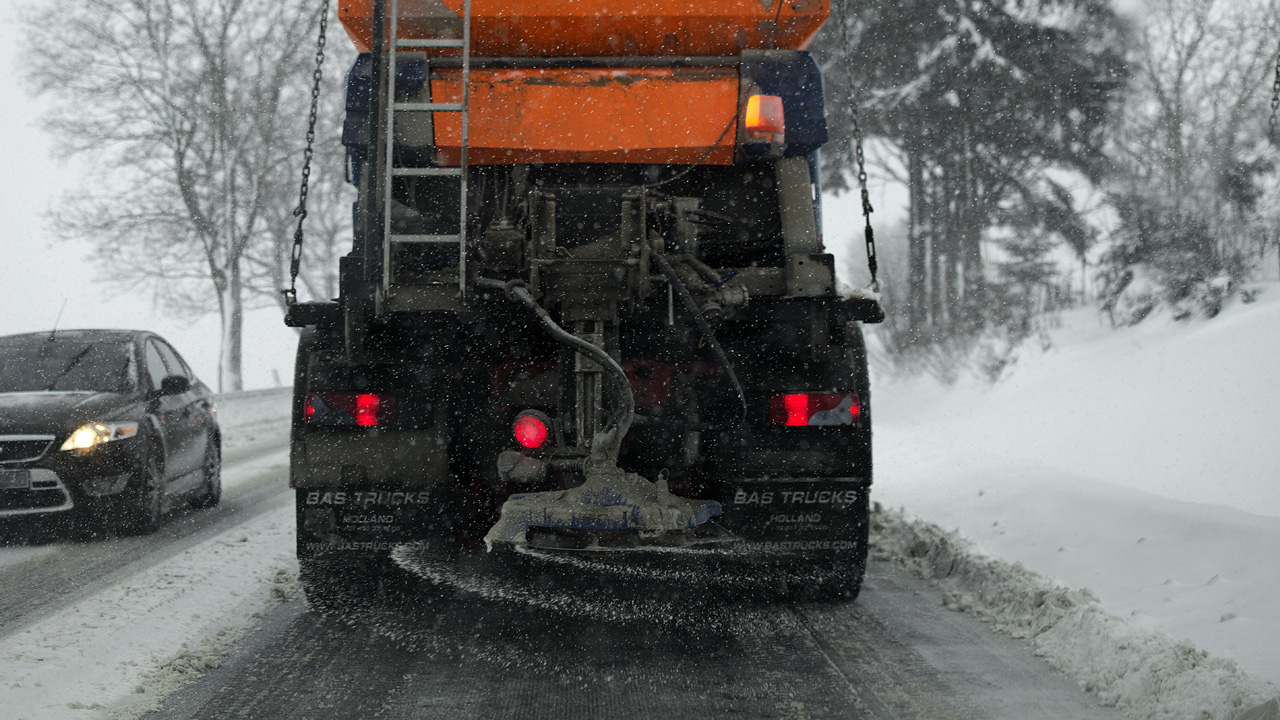
But at What Cost?
Rock salt is effective at clearing roads, but it’s also an environmental pollutant with direct and detrimental effects on the natural world. As it enters our storm drains, natural bodies of water, and surrounding landscapes, salt impacts ecosystem health in numerous ways. According to the University of Florida, salt disrupts important life processes in animals – like breeding, eating, and mating. It also negatively affects plants and the living soil community by altering the soil’s chemistry and structure. Not surprisingly then, salt has also been found to lower the biodiversity of insects and other invertebrates in our streams, as well as plants, animals, and other organisms in our wetlands. And because there are no natural biological processes – chemical, physical, or biological – to quickly remove sodium and chloride ions from the environment, salt only becomes more concentrated over time.
On top of that, studies show that a significant proportion of applied rock salt immediately bounces off the roadway or gets displaced by vehicle traffic, meaning even more salt is applied to get the job done.
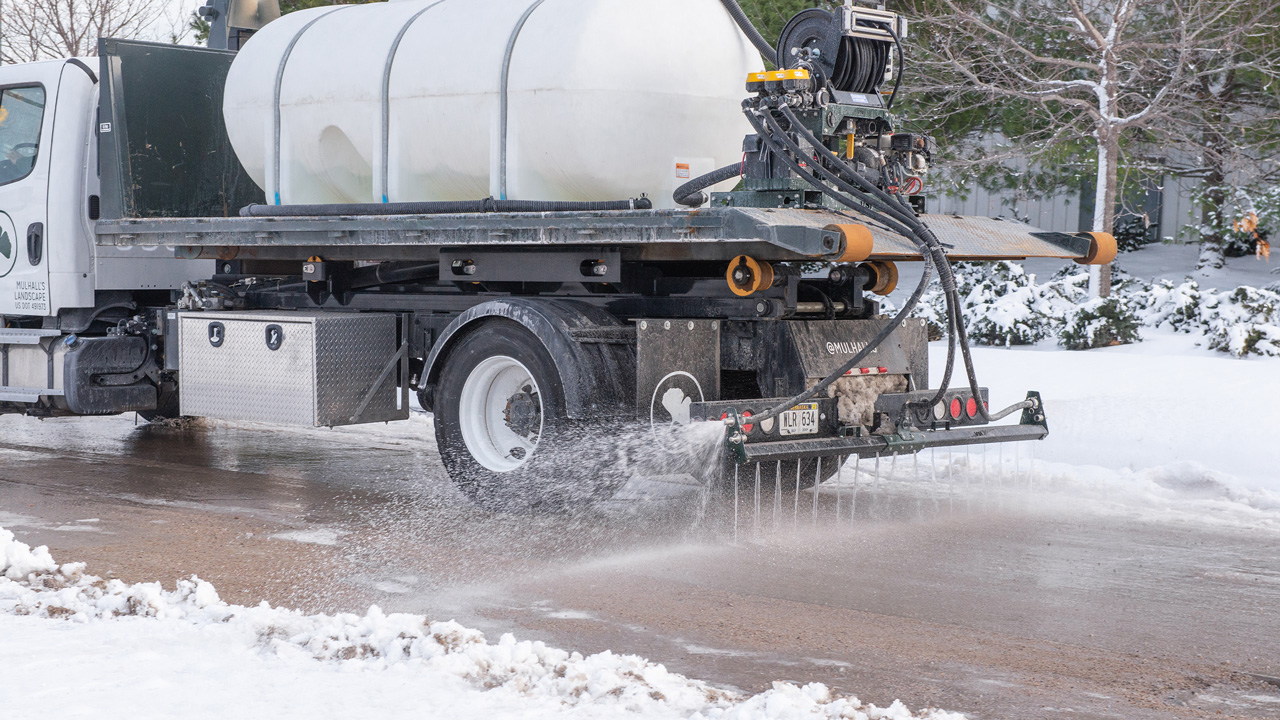
Salt Brine – a Better Alternative
Salt brine is a liquid mixture of sodium chloride and water, and it offers a number of benefits for use in snow and ice management. First, because the salt is already mixed with water, it’s effective immediately and can prevent freezing on the pavement before it even begins. So when we apply it before an expected winter storm, our Snow + Ice Management team can easily clear away snow, leaving a clean and safe surface behind.
From an environmental perspective, liquid brine is a much better option too. As the Iowa Department of Transportation points out, instead of bouncing off the road, it sticks where it’s applied – sometimes even offering residual protection against the next storm too. Ultimately, it means significantly less salt used and less salt pollution. And that’s a very good thing.
In addition, because brine can be applied more quickly than rock salt and has residual benefits that extend to the next storm, trucks spend fewer hours out on the road and use less fuel. Liquid brine is also much less destructive to our equipment, meaning less need for replacement and wasted resources – another improvement in our overall impact on the environment.
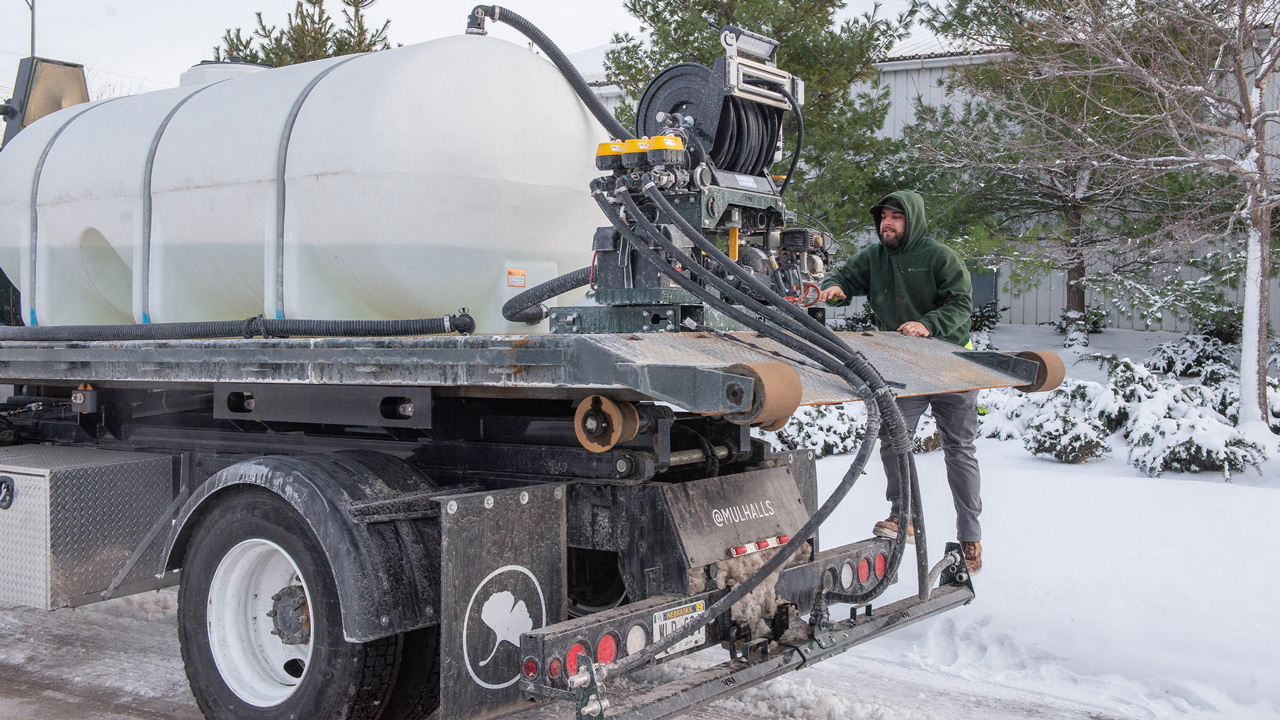
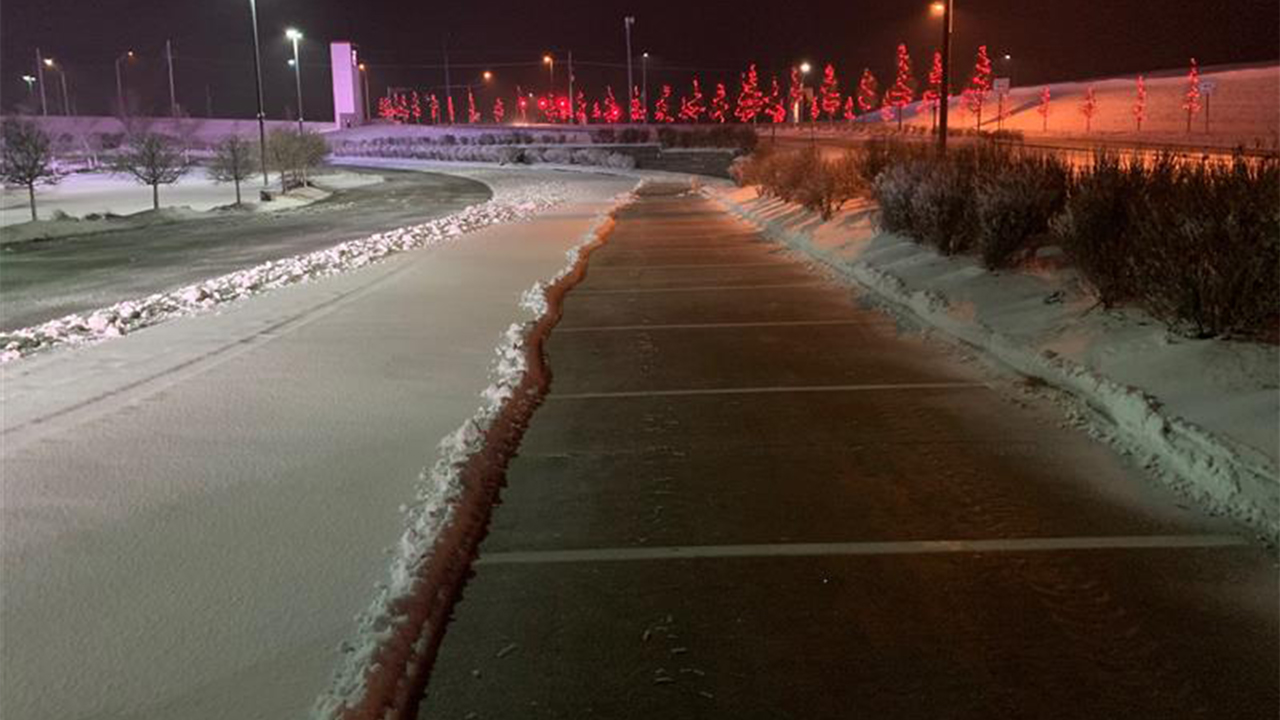
For Our Community + the Planet
Before the next winter storm, you might spot one of our green trucks, utility vehicles, or members of the team on foot using specialized equipment to apply salt brine around town. It’s all part of our commitment to our community and to the natural world. We’re excited about the impact of our new liquid brine system, and we hope you are too. To a more beautiful Omaha and healthier planet!

